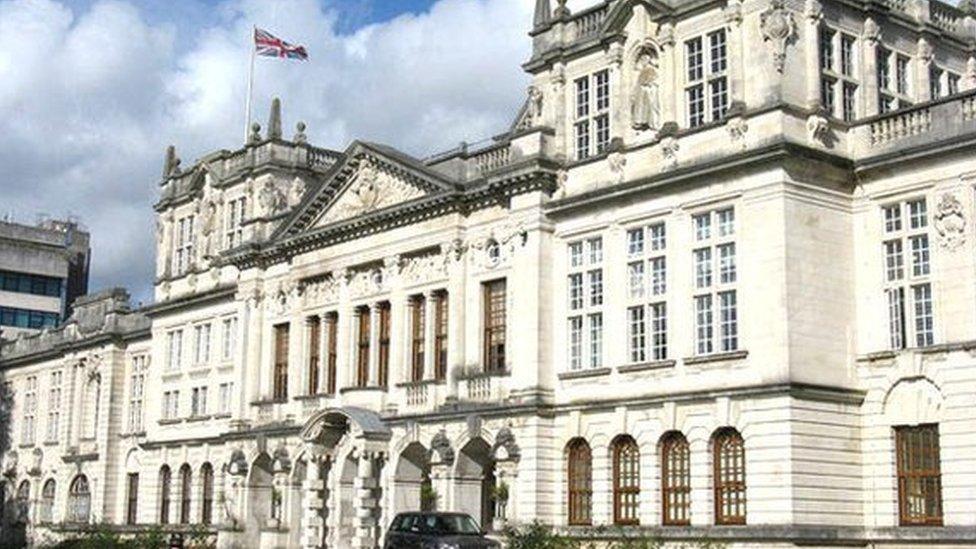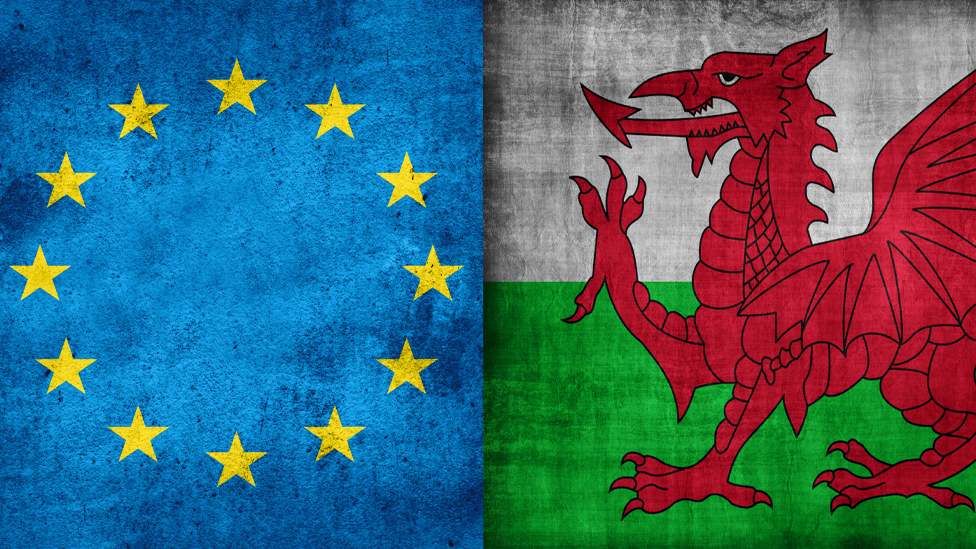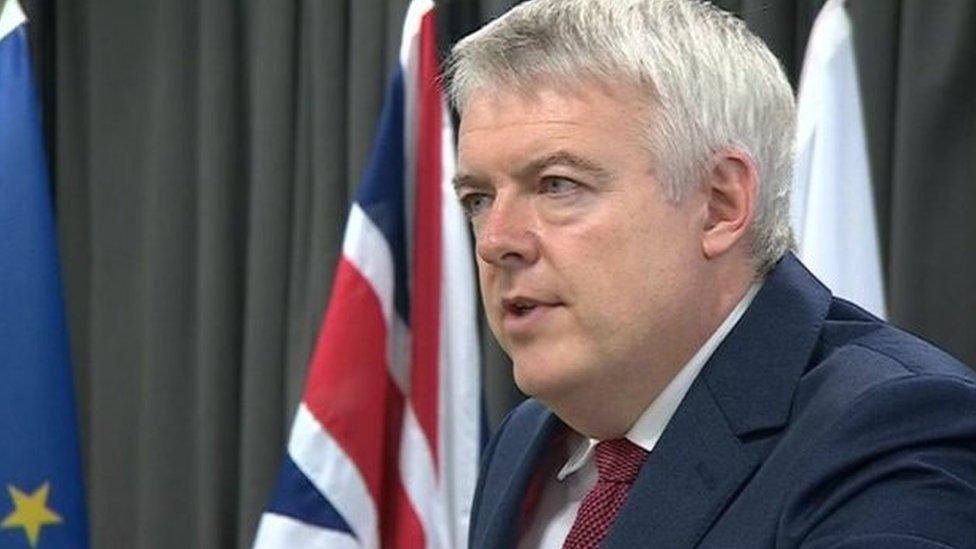Brexit split needs bridging, Kirsty Williams tells universities
- Published
Kirsty Williams: 'Our notions of togetherness ... are perhaps weaker than we imagined'
Universities should help re-unite Welsh society after the Brexit vote, the education secretary has said.
Kirsty Williams told them they have a "responsibility as stewards of community, city and country", at a speech in Cardiff.
The referendum showed "notions of togetherness" were "perhaps weaker than we imagined", she warned academics.
The Conservatives said she had offered some "nuggets of wisdom" but was "exaggerating a sense of crisis".
Universities and the Ms Williams campaigned for the UK to remain an EU member before the vote in June.
However, Brexit was backed by 52.5% of voters in Wales, with 47.5% supporting Remain.
On Monday, First Minister Carwyn Jones said Wales must get away from the abuse and bitterness of the referendum campaign.
'Arc of history'
Speaking at Cardiff University on Thursday, Ms Williams claimed there was an "urgency" for universities to "recapture a civic mission" after the Leave vote.
She suggested the existence of much of what is taken for granted in modern life might not be as secure as many people believe.
"The victories that help bend the arc of history towards progress - feminism, opening up access to education, civility in our discourse and towards others, civil rights, even devolution - may be far more fragile than we imagined," Ms Williams said.
"The vote showed that when people and communities think advancements are for the benefit of others - rather than for them, their families or society at large - they will think they have nothing to lose by standing against these."
Urging colleges to do more to reach out to people across Wales, Ms Williams said the referendum exposed the "distance between campus and community".
She warned: "At a UK-level, the pro-EU campaign of universities was too easily dismissed as one of self-interest, almost exclusively focused on income.
"This is not to exempt politicians and government from criticism, far from it. But it is certainly incumbent on universities to reflect on the distance between campus and community exposed by the referendum."
Ms Williams has also announced she is establishing a Welsh Higher Education Brexit Working Group, to advise on the "impact and possibilities" arising from the UK's departure from the European Union.


Analysis by Bethan Lewis, BBC Wales education correspondent
Six years ago the then Education Minister Leighton Andrews said university governance was "the last resting place of the crachach" - elitist and detached from mainstream Welsh society.
In her first big address to university bosses, Education Secretary Kirsty Williams's tone was distinctly less confrontational.
But her more nuanced message still displayed a view in government that institutions getting millions in public money should do more for their communities and the nation.
"They can't hide behind the walls of their very fine buildings - they have to be a part of the communities in which they are placed and the country as a whole - they recognise that," she told me afterwards.
The EU referendum - in which the universities argued strongly to stay in - is one example of the divide between campus and community, she says.
The universities' response is to say they are committed to bridging the gap and will build on what they already do in their communities.
And both government and universities will hope the Diamond Review on higher education finance, due to report later this month, will go some way to resolving the tensions between them over funding.

Conservative education spokesman Darren Millar accused the minister of "exaggerating a sense of crisis and division".
"There are some nuggets of wisdom in this speech, and few would argue that the gap between campus and community has widened over the course of a generation," he said.
"However, the suggestion that Wales' decision to leave the EU has somehow placed education, civil rights or feminism under threat is absolute nonsense."
Cardiff University vice chancellor Prof Colin Riordan, who chairs Universities Wales, said: "Being part of and contributing to community has always been at the heart of what we do as universities."
He added: "We are proud of our successes, but we can do more to embrace and appreciate the cultural and social diversity of the communities within which we sit."
- Published7 September 2016

- Published5 September 2016

- Published30 August 2016

- Published24 June 2016
